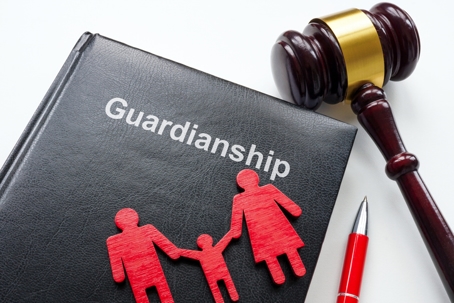When someone is unable to care for themselves or a loved one, the courts can step in to appoint a guardian. This decision carries deep personal and legal implications, especially when family dynamics, financial responsibilities, and long-term care come into play. Whether involving a child or an incapacitated adult, guardianship ensures that someone trustworthy can make important life decisions on their behalf.
Guardianship of a Minor
Sometimes, parents are unable to care for their child because of illness, incapacity, absence, or other serious circumstances, the court may appoint a guardian to protect the child’s best interests. Guardianship of a minor helps maintain stability and ensures that the child continues to receive consistent care and guidance.
A guardian may have the authority to make key decisions about:
- Living arrangements and daily care
- Medical treatment and healthcare choices
- Education and schooling decisions
Unlike adoption, guardianship does not permanently end the parent-child relationship. Parents may still retain some rights, and the court can modify or end the arrangement if the family’s situation changes.
The process begins when a potential guardian files a petition with the court. The judge will review several factors, including the parents’ ability to provide care, the suitability of the proposed guardian’s home, and, in some cases, the child’s own preferences based on their age and maturity.
Temporary & Long-Term Guardianships
Guardianship isn’t just a legal formality; it’s a commitment to ensuring a child’s safety, stability, and opportunity to grow within a supportive environment.
Guardianships can take different forms depending on the needs of the child and the circumstances of the parents. They may be:
- Temporary, such as when a parent is recovering from illness or deployed.
- Long-Term, when parents are unable to resume their role due to ongoing incapacity or other permanent circumstances.
Regardless of duration, guardians carry serious legal duties. They must always act in the child’s best interests and may be required to provide regular reports to the court. Because the process can be complex, consulting an attorney can help ensure all court requirements are met and that the child’s welfare remains protected.
Guardianship of an Adult
Adult guardianship comes into play when an individual can no longer manage their personal, financial, or medical affairs because of disability, illness, or mental incapacity. This legal process allows the court to appoint someone to make decisions on their behalf, ensuring their well-being and protection.
Depending on the situation, the court may appoint:
- A Guardian of the Person, to handle medical care, housing, and daily needs.
- A Guardian of the Property, to manage income, pay bills, and protect assets.
- A Combined Guardian, with authority over both personal and financial matters.
Guardianship of an adult is ultimately about preserving dignity, safety, and independence while ensuring essential decisions are made responsibly. Before appointing a guardian, the court requires medical or professional evidence confirming the adult’s incapacity.
The court aims to protect the person’s rights and will limit the guardian’s powers to what’s strictly necessary. Guardians must also report periodically to the court to ensure accountability and oversight.
Legal Counsel for Guardianship in Montgomery County, MD
Establishing guardianship is a major decision meant to protect the well-being of someone who cannot manage their own affairs. Because the process involves significant legal responsibilities, many families seek help from a guardianship attorney to understand the options available and to navigate the court proceedings effectively.
Maryland’s guardianship laws and procedures can be challenging, but you don’t have to handle it alone.
At Bortmes Legal Services, LLC, our Rockville guardianship lawyer can help you:
- Seek guardianship for a loved one who needs support.
- Contest a guardianship if you believe it’s unnecessary or unfair.
- Transfer or modify guardianship when circumstances change.
- Navigate court filings & hearings with clarity and confidence.
If you are considering filing for guardianship of a minor or adult, contact our law firm today.
Call (301) 771-1606 or schedule a consultation online and learn how we can help you protect your loved one’s best interests.

